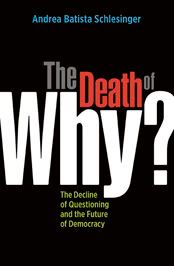As reported by the Huffington Post, this booking photo released by the Cambridge, Mass., Police Dept., shows Harvard scholar Henry Louis Gates, Jr., who was arrested while trying to force open the locked front door of his home near Harvard University Thursday, July 16, 2009. Gates, a pre-eminent African-American scholar, is accusing Cambridge police of racism after he was arrested on a disorderly conduct charge after police said he "exhibited loud and tumultuous behavior." He was released later that day on his own recognizance and arraignment was scheduled for Aug. 26. (AP Photo/Cambridge Police Dept.) There is more, the Huffington Post reports, police responding to a call about "two black males" breaking into a home near Harvard University ended up arresting the man who lives there – Henry Louis Gates Jr., the nation's pre-eminent black scholar. Gates had forced his way through the front door because it was jammed, his lawyer said. Colleagues call the arrest last Thursday afternoon a clear case of racial profiling. Cambridge police say they responded to the well-maintained two-story home after a woman reported seeing "two black males with backpacks on the porch," with one "wedging his shoulder into the door as if he was trying to force entry." By the time police arrived, Gates was already inside. Police say he refused to come outside to speak with an officer, who told him he was investigating a report of a break-in. "Why, because I'm a black man in America?" Gates said, according to a police report written by Sgt. James Crowley. The Cambridge police refused to comment on the arrest Monday. Gates – the director of Harvard's W.E.B. Du Bois Institute for African and African American Research – initially refused to show the officer his identification, but then gave him a Harvard University ID card, according to police. "Gates continued to yell at me, accusing me of racial bias and continued to tell me that I had not heard the last of him," the officer wrote. Gates said he turned over his driver's license and Harvard ID – both with his photos – and repeatedly asked for the name and badge number of the officer, who refused. He said he then followed the officer as he left his house onto his front porch, where he was handcuffed in front of other officers, Gates said in a statement released by his attorney, fellow Harvard scholar Charles Ogletree, on a Web site Gates oversees, TheRoot.com Check out what grass roots folks have to say on my blogtalkradio program about Henry Louis Gates Jr., the nation's pre-eminent black scholar at: http://tobtr.com/s/590154. Statement on Behalf of Henry Louis Gates, Jr. -- by Charles Ogletree This brief statement is being submitted on behalf of my client, friend, and colleague, Professor Henry Louis Gates, Jr. This is a statement concerning the arrest of Professor Gates. On July 16, 2009, Professor Henry Louis Gates, Jr., 58, the Alphonse Fletcher University Professor of Harvard University, was headed from Logan airport to his home [in] Cambridge after spending a week in China, where he was filming his new PBS documentary entitled “Faces of America.” Professor Gates was driven to his home by a driver for a local car company. Professor Gates attempted to enter his front door, but the door was damaged. Professor Gates then entered his rear door with his key, turned off his alarm, and again attempted to open the front door. With the help of his driver they were able to force the front door open, and then the driver carried Professor Gates’ luggage into his home. Professor Gates immediately called the Harvard Real Estate office to report the damage to his door and requested that it be repaired immediately. As he was talking to the Harvard Real Estate office on his portable phone in his house, he observed a uniformed officer on his front porch. When Professor Gates opened the door, the officer immediately asked him to step outside. Professor Gates remained inside his home and asked the officer why he was there. The officer indicated that he was responding to a 911 call about a breaking and entering in progress at this address. Professor Gates informed the officer that he lived there and was a faculty member at Harvard University. The officer then asked Professor Gates whether he could prove that he lived there and taught at Harvard. Professor Gates said that he could, and turned to walk into his kitchen, where he had left his wallet. The officer followed him. Professor Gates handed both his Harvard University identification and his valid Massachusetts driver’s license to the officer. Both include Professor Gates’ photograph, and the license includes his address. Professor Gates then asked the police officer if he would give him his name and his badge number. He made this request several times. The officer did not produce any identification nor did he respond to Professor Gates’ request for this information. After an additional request by Professor Gates for the officer’s name and badge number, the officer then turned and left the kitchen of Professor Gates’ home without ever acknowledging who he was or if there were charges against Professor Gates. As Professor Gates followed the officer to his own front door, he was astonished to see several police officers gathered on his front porch. Professor Gates asked the officer’s colleagues for his name and badge number. As Professor Gates stepped onto his front porch, the officer who had been inside and who had examined his identification, said to him, “Thank you for accommodating my earlier request,” and then placed Professor Gates under arrest. He was handcuffed on his own front porch. Professor Gates was taken to the Cambridge Police Station where he remained for approximately 4 hours before being released that evening. Professor Gates’ counsel has been cooperating with the Middlesex District Attorneys Office, and the City of Cambridge, and is hopeful that this matter will be resolved promptly. Professor Gates will not be making any other statements concerning this matter at this time. Read the police report here. |
Monday, July 20, 2009
Henry Louis Gates, Jr., Arrested
Sunday, July 19, 2009
The Death of Why?: An Interview With Author Andrea Batista Schlesinger
“Why is the first question most children ask. With this question we express, to the delight and chagrin of our parents, our power.Although only thirty-two, Schlesinger has operated in the arena of policy debates locally in New York City and nationally for over a decade. Since 2002, Schlesinger has applied her background in public policy, politics, and communications to transform the Drum Major Institute (“DMI”) into a progressive policy think tank with national impact. During her tenure as Executive Director, DMI created its Marketplace of Ideas series which highlights successful progressive policies from across the country and launched two public policy blogs that reach several thousand readers a day; and embarked on a national program to nurture careers in public policy for college students from underrepresented communities. Recently, Schlesinger took a leave of absence from DMI to serve as a senior policy adviser to the re-election campaign of New York City mayor Michael R. Bloomberg – a decision that is controversial among New York City liberals like myself. Prior to joining DMI, Schlesinger directed a national Pew Charitable Trusts campaign to engage college students in discussion about the future of Social Security and served as the education adviser to Bronx borough president and mayoral candidate Fernando Ferrer. The one life lesson Schlesinger has learned above all others in her career and promotes passionately her book is that questions equals power. It is Schlesinger’s contention that our culture promotes instant answers at the expense of inquiring. With this book, Schlesinger has four primary objectives: 1) Convince readers of the importance of inquiry in our democracy 2) Illustrate how the very institutions that should be encouraging inquiry such as schools, the media, and government, the Internet are instead undermining intellectual curiosity in our society; 3) Inspire readers with hopeful examples of people working to restore inquiry to its rightful place of importance; 4) Convey a sense of urgency among citizens to develop effective “habits of the mind” and not be easily seduced by instant easy sound bite answers to complex challenges such as global warming. Death of Why, is a well researched and scrupulously sourced eleven chapters and 215 pages of text. Where Schlesinger’s book is especially provocative is when she takes bloggers like me to task for engaging in robotic group-think and avoiding engagement with people possessing different viewpoints. Former New York Governor Mario Cuomo said that, "The road to wisdom is asking 'why'? Andrea Batista Schlesinger has been asking 'why?" and supplying her own bright and thoughtful answers for long enough so that some of us suggested she write a book. It's foruntate for all of us that her answer was 'why not!'"The publisher of The Nation, Kathleen vanden Heuvel added that, "From her start in politics as a teenager Andrea Batista Schlesinger has asked the important questions. Now she asks her most important: are we teaching young people to value inquiry, and if not, what hope can we have for the future of democracy?"Schlesinger graciously agreed to a telephone podcast interview with me this afternoon about her book. She was engaging and assertive in a conversation that was just over forty-six minutes. Among the topics discussed and debated is her contention that we’re ideologically segregated, her argument that the Internet has reinforced a destructive group think mentality in our society, her advocacy for civics education and objection to teaching “financial literacy” in public schools and we closed by discussing her decision to join Mayor Bloomberg’s re-election campaign as a senior policy adviser. Please refer to the flash media player below. This interview can also be accessed at no cost via the Itunes Store by either searching for the “Intrepid Liberal Journal” or “Robert Ellman.” |
Posted by
Robert Ellman
at
3:44 PM
0
comments
![]()
Labels: Andrea Batista Schlesinger, Mayor Michael Bloomberg, The Death of Why, the Drum Major Institute
Mormon Mysteries #549
 click to enlarge I guess this is a bad time to admit I am a big fan of HBO's Big Love? |
Posted by
Storm Bear
at
9:20 AM
0
comments
![]()
Labels: cartoons, comics, humor, lbgt, mormons, politics, Salt Lake City, webcomics









